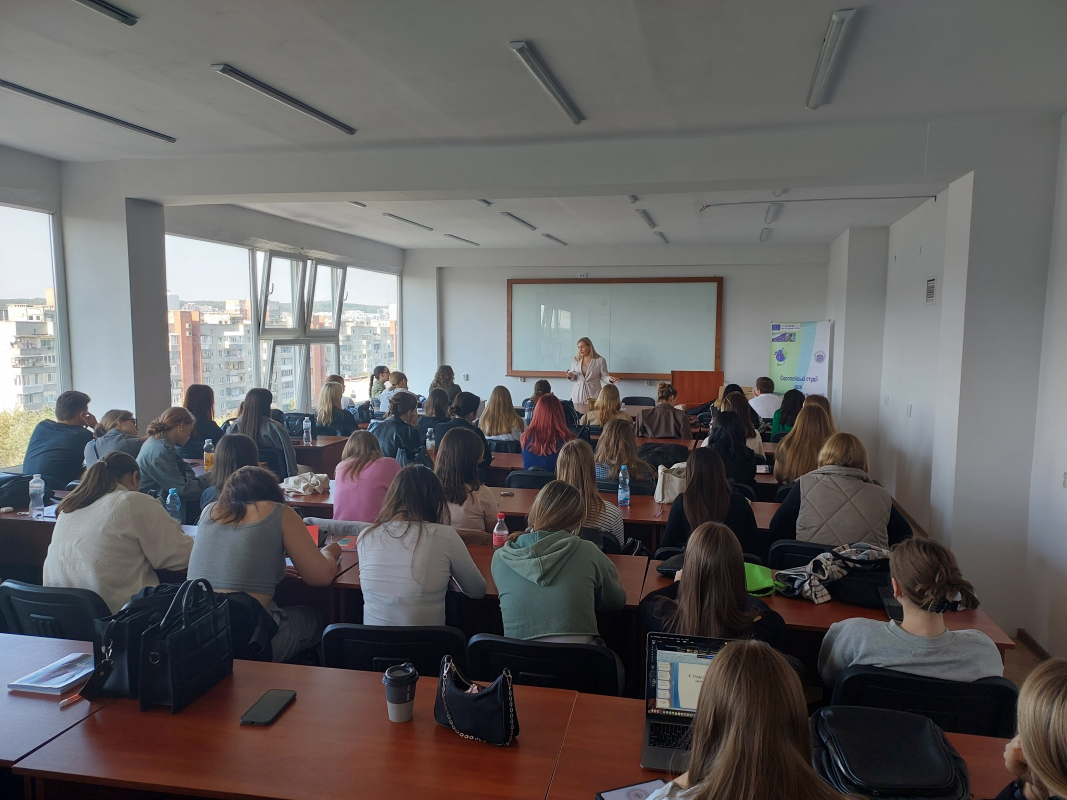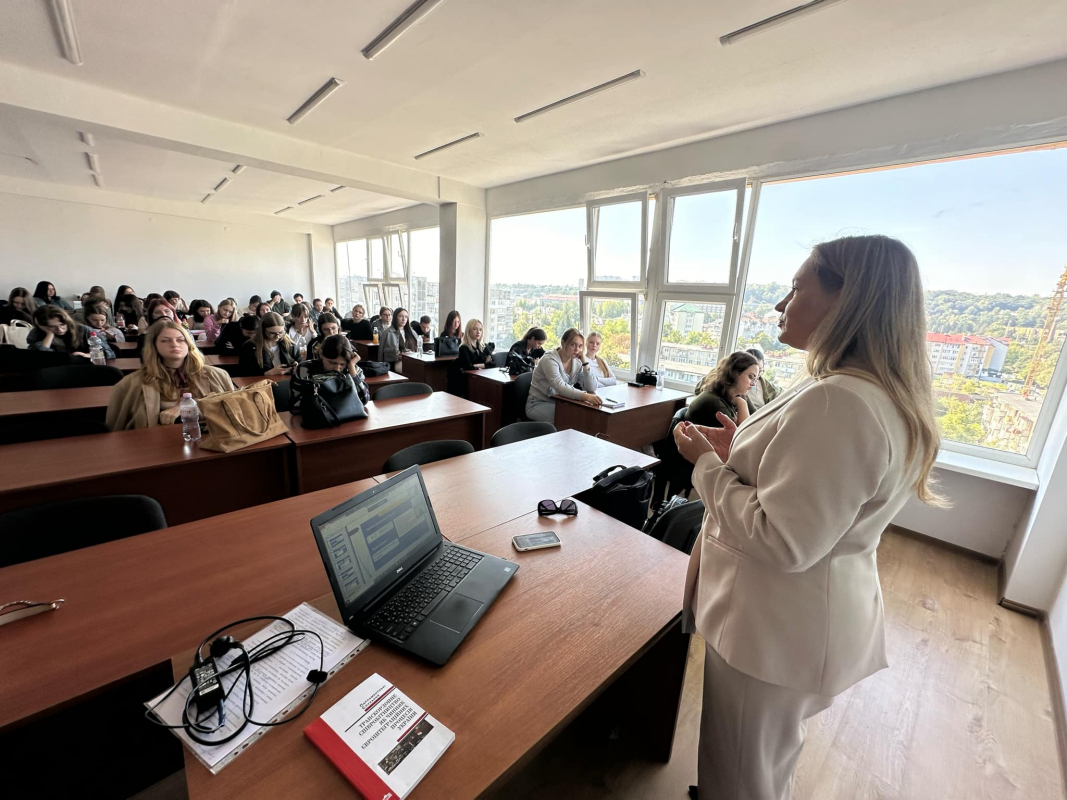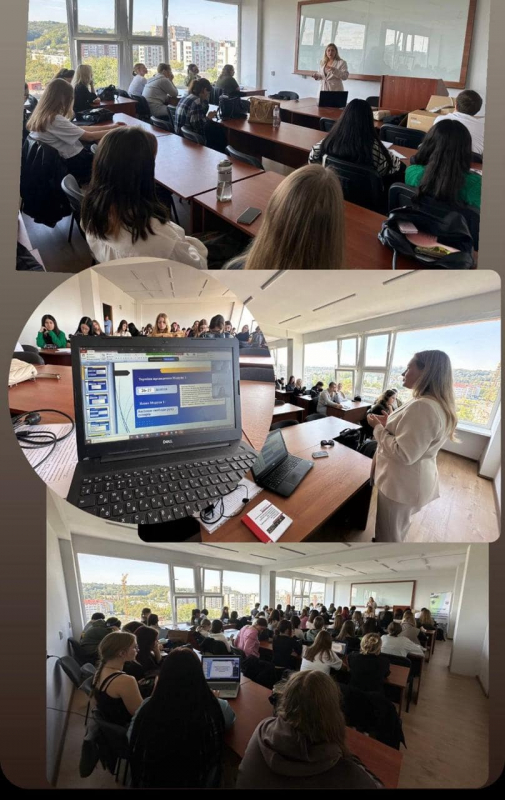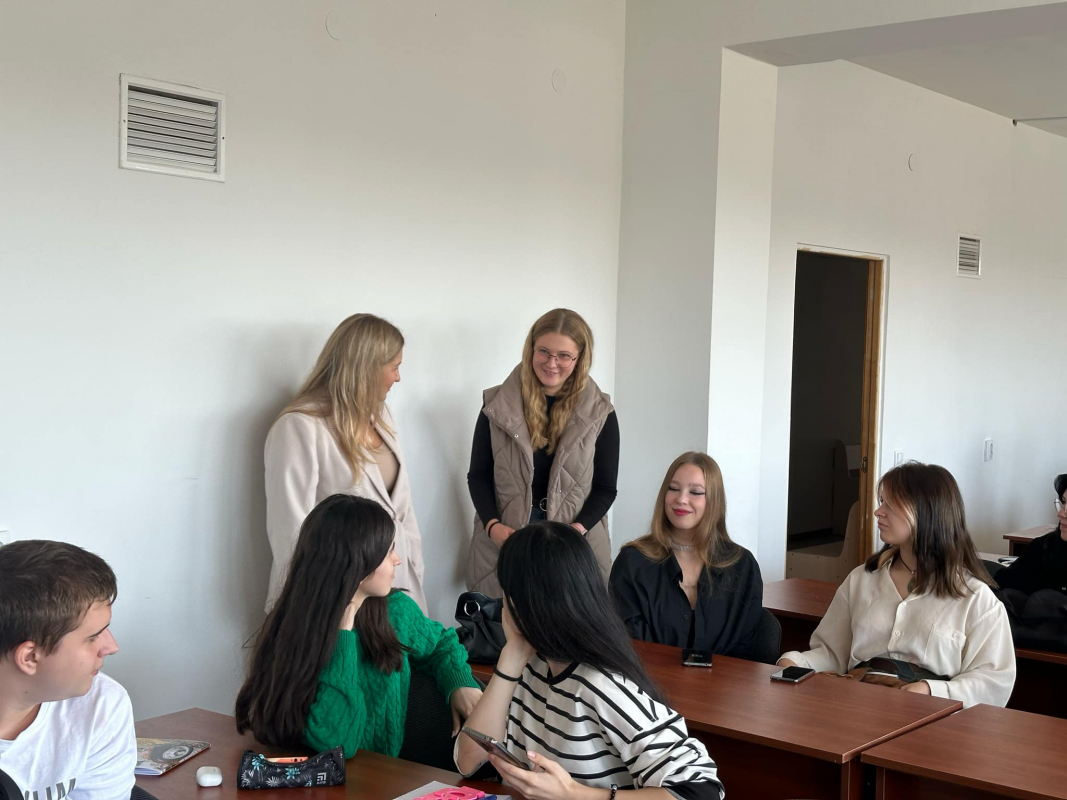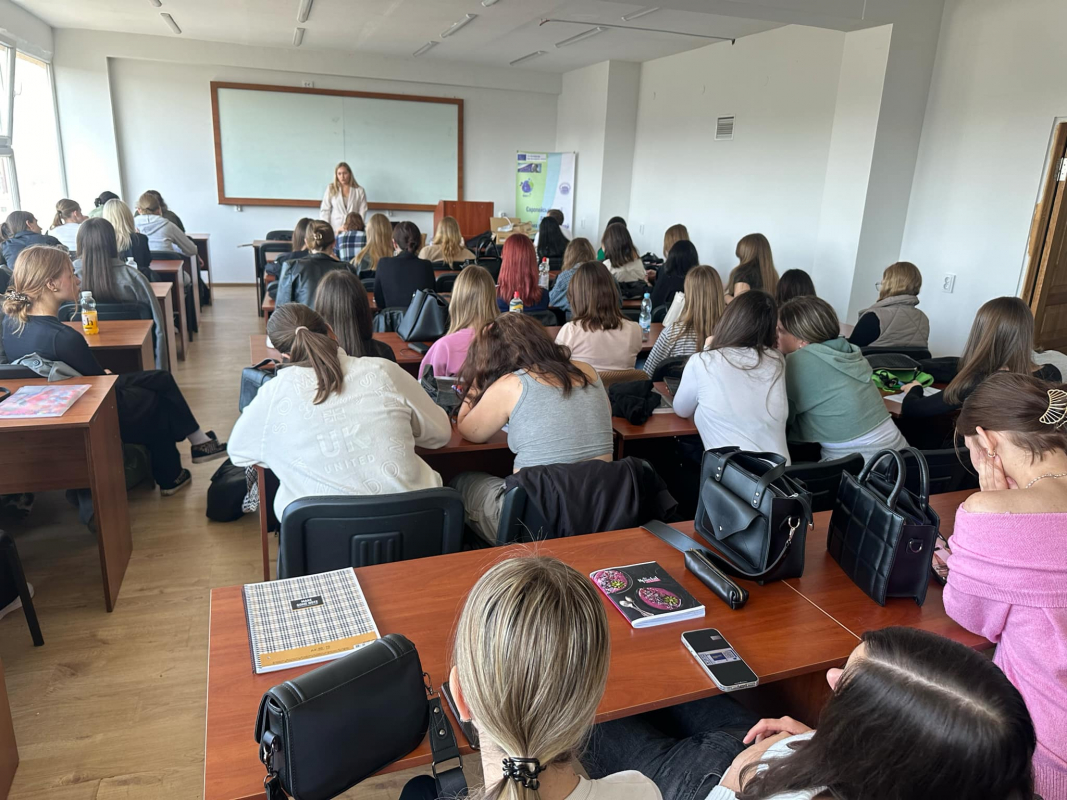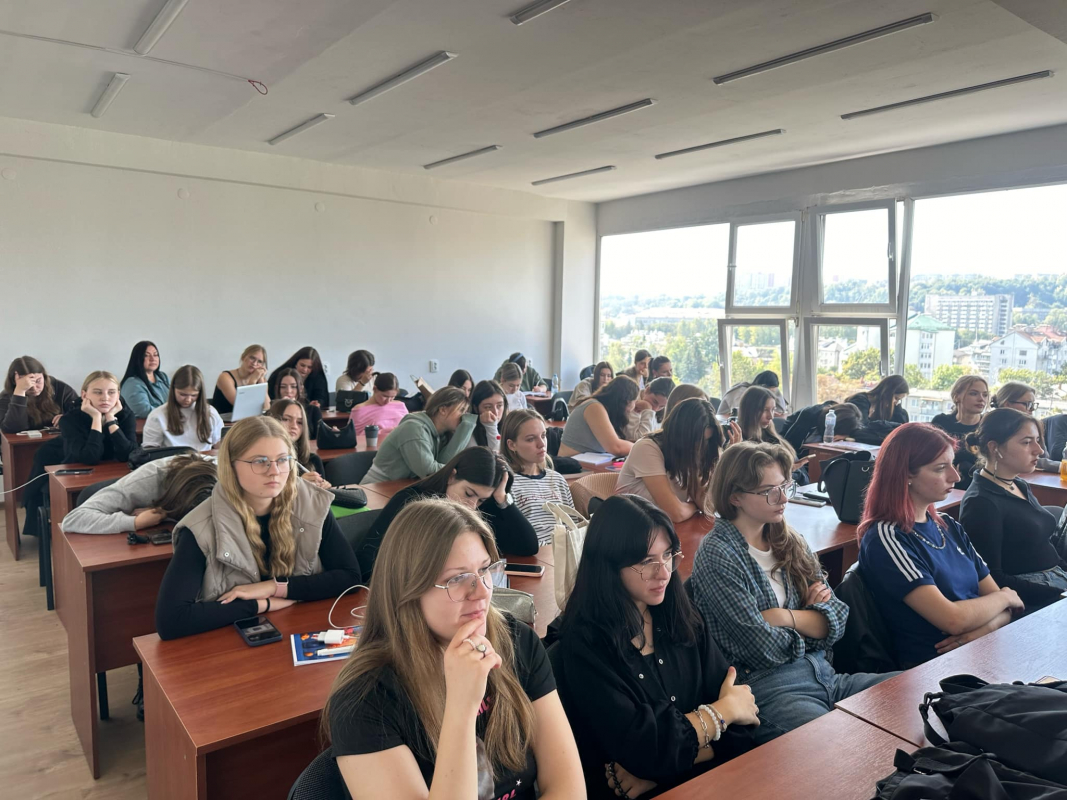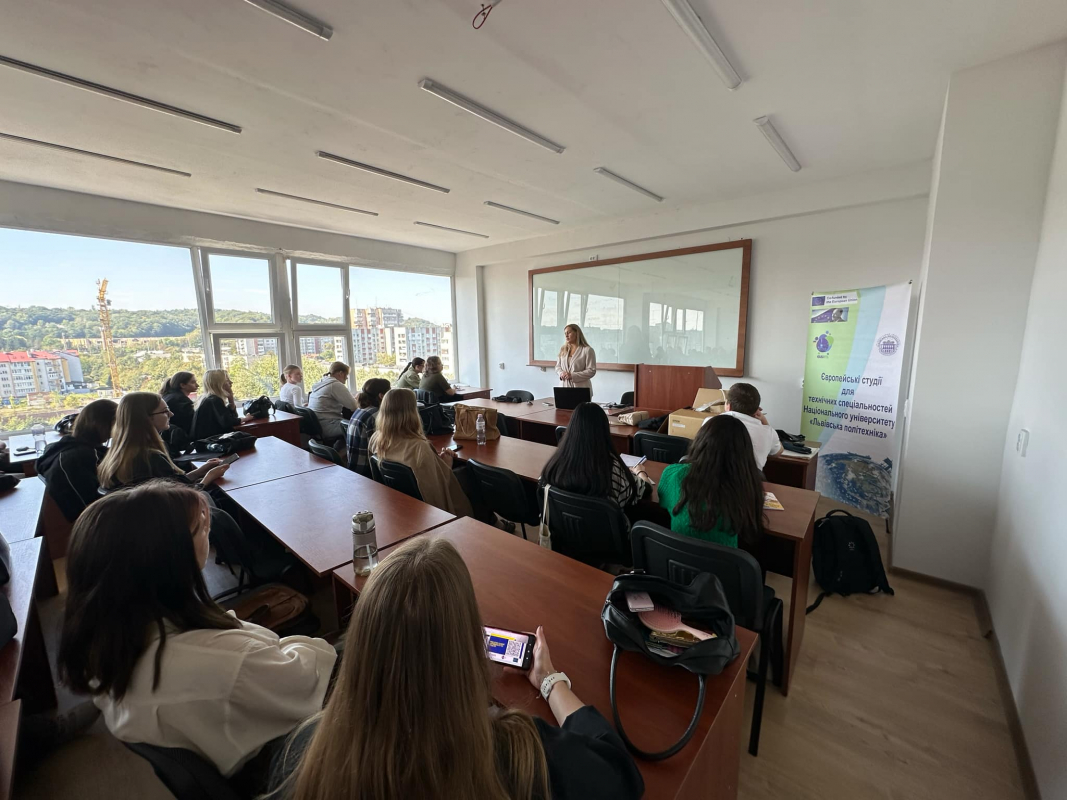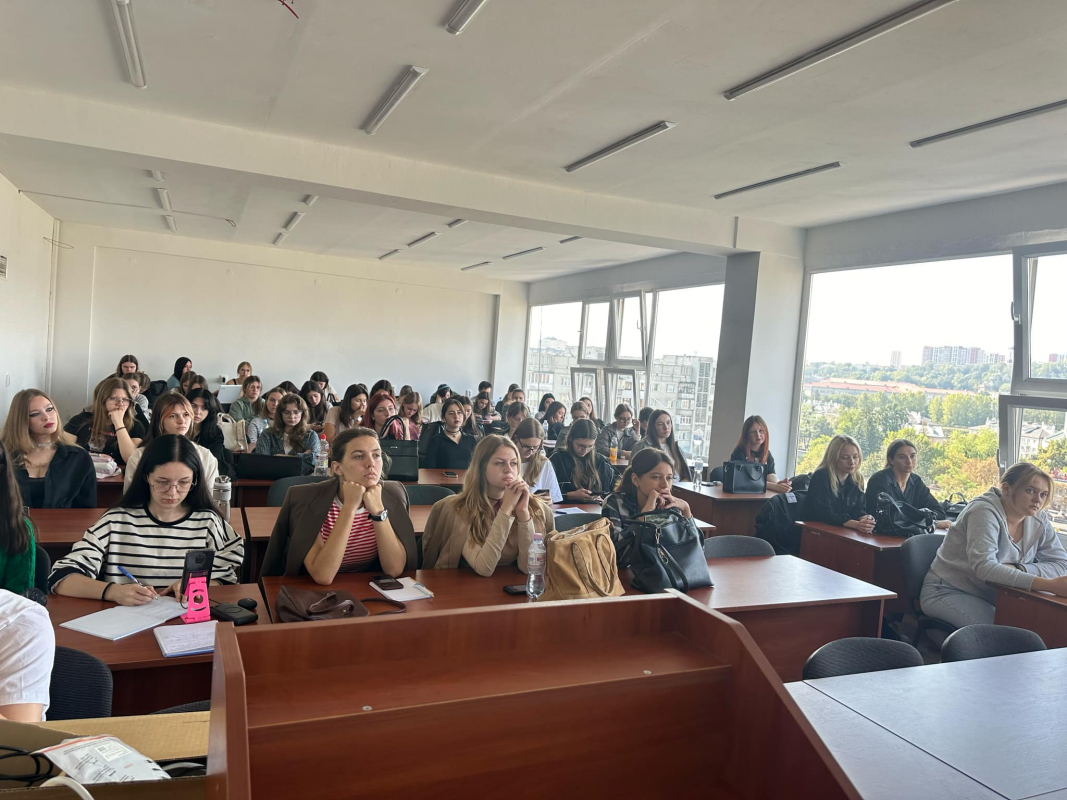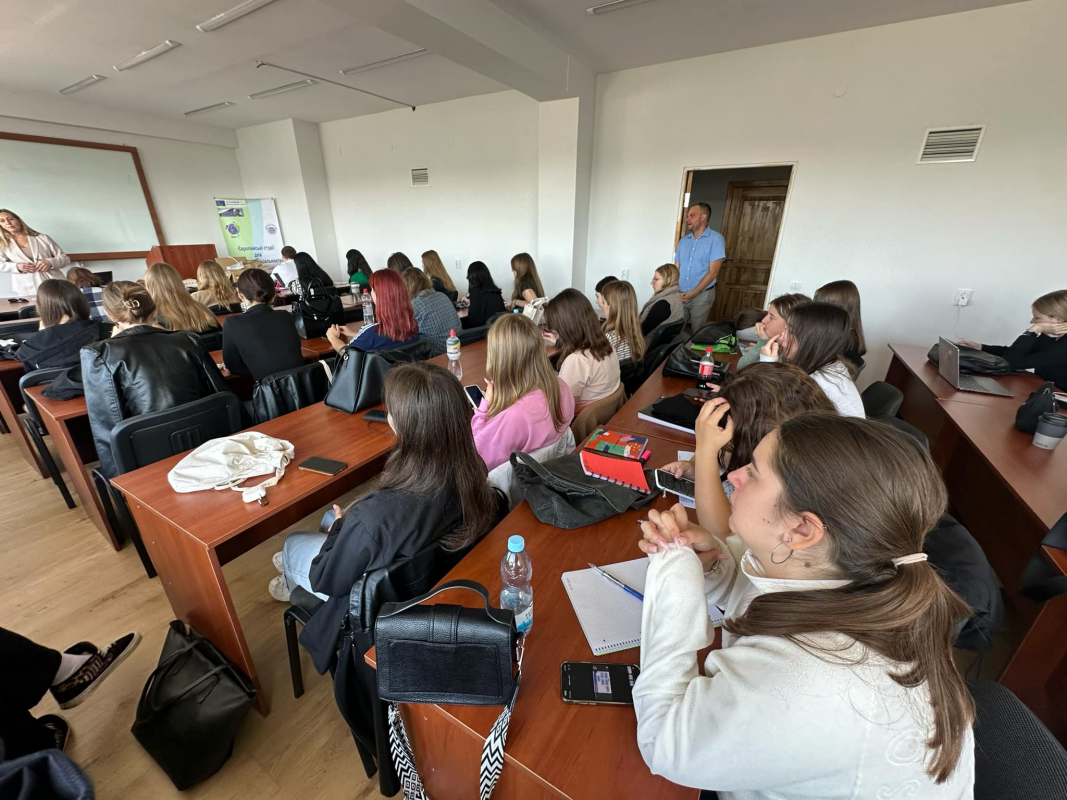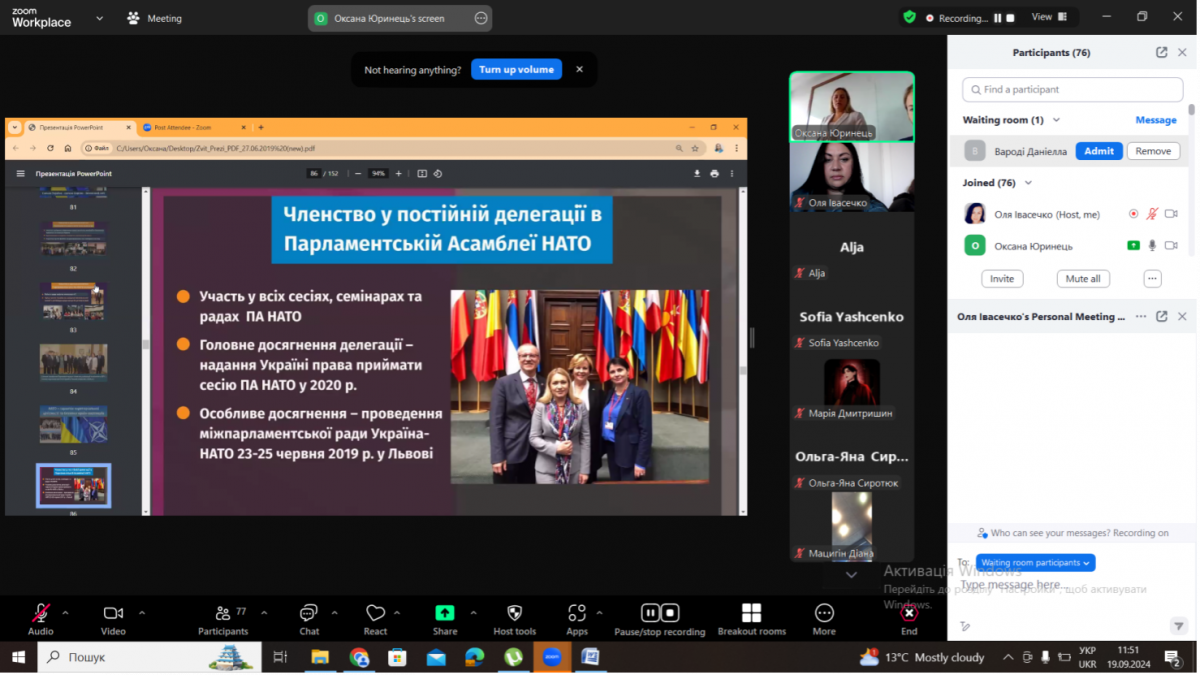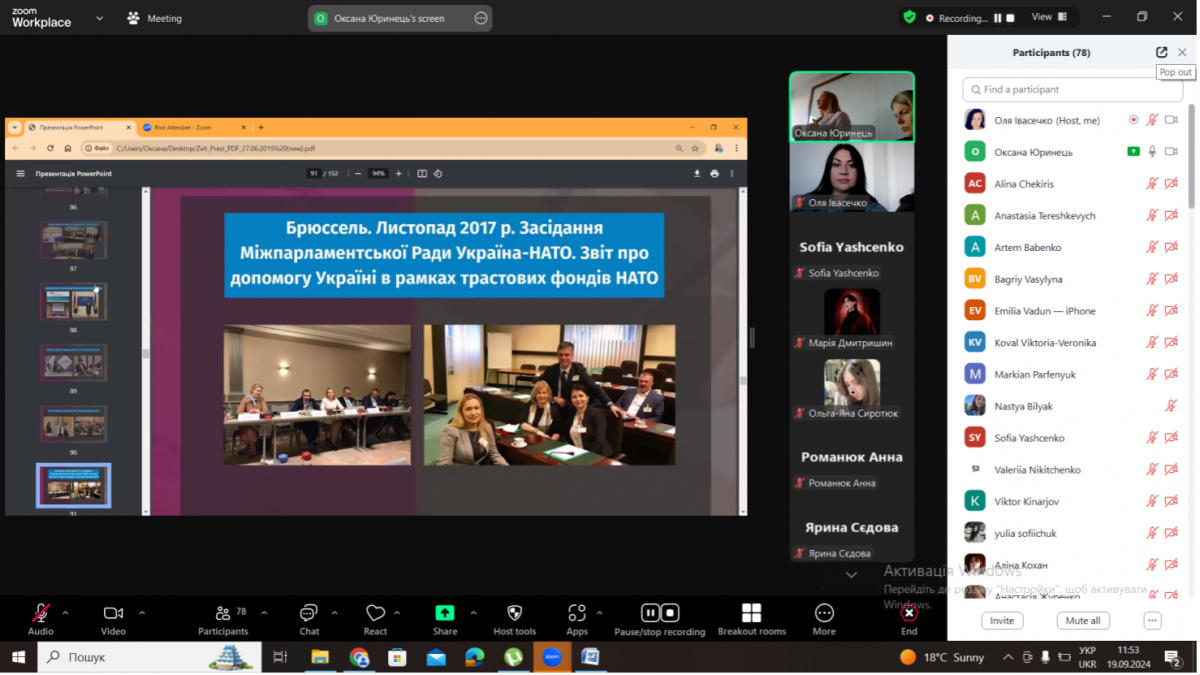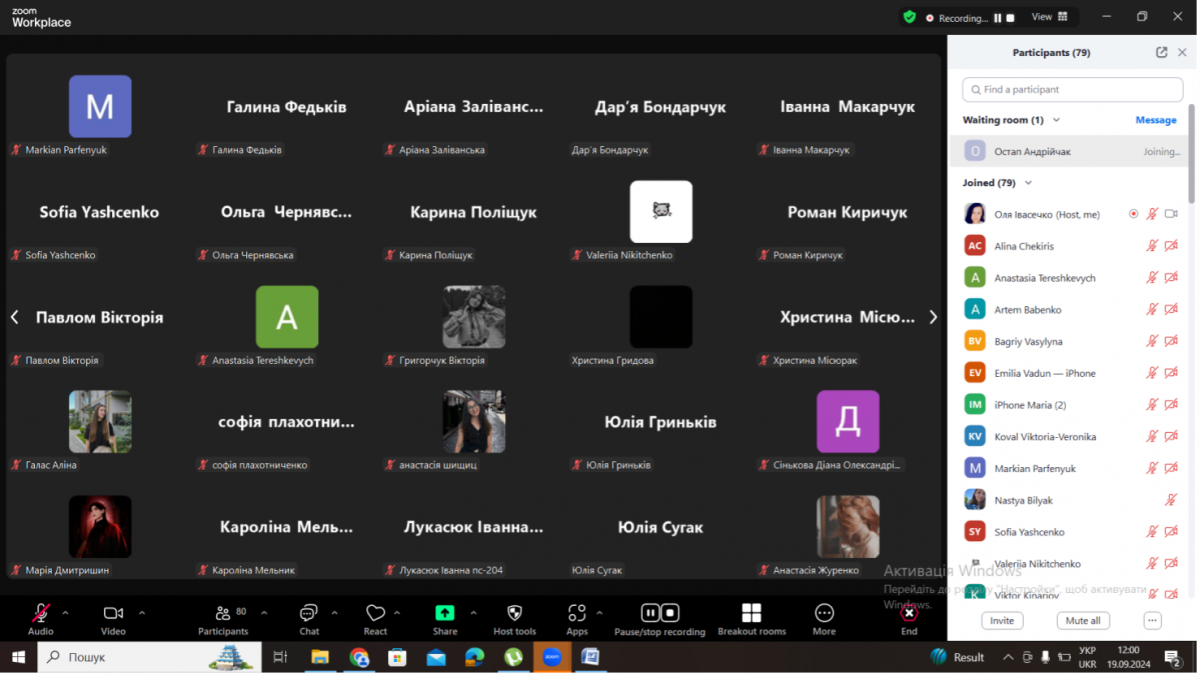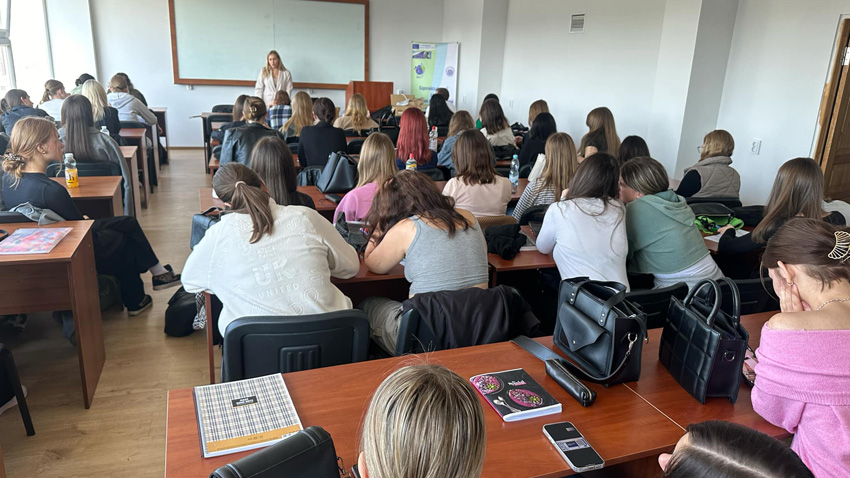On September 19, 2024, a public lecture by Oksana Yurynets, a member of the of the Verkhovna Rada of Ukraine of the VIII convocation, Chairman of the Subcommittee on Regional Development and Cross-Border Cooperation in the Committee on European Integration President of the NGO “Agency for European Cooperation” on the topic: ‘Youth and European Integration of Ukraine’.
In her speech, the speaker focused on the content of European integration, its importance for Ukrainian youth in the context of Ukraine's European integration course. Oksana Yurynets paid special attention to the Association Agreement, highlighting at least ten of its position, namely: an instrument of pro-European transformation, legal obligations, not declarations, common values, state and society as a European model, strengthening consumer rights, more goods at lower prices, cleaner environment, fewer road deaths, better education, and an impetus for sectoral cooperation. The lecturer focused on the agenda of Ukraine's movement towards EU membership, as well as the involvement of civil society representatives in the negotiation process (including young people). In particular, she spoke about the resolution of the Cabinet of Ministers of Ukraine of August 27, 2024, according to which 36 negotiation groups were established to be responsible for a specific thematic area of negotiations on Ukraine's accession to the European Union. Oksana Yurynets also drew the students' attention to the content of the criteria that must be met by non-governmental organizations wishing to participate in such activities. Thus, NGOs must have been registered with the state for at least 5 years; have been implementing projects on topics that cover the negotiation section for the last 3 years; have experience in preparing draft laws, reports, analytical assessments, and other documents related to the adaptation of Ukrainian legislation to EU law. An equally important part of the selection criteria is actual experience in implementing joint projects with EU partners, including research projects, and membership in the EU-Ukraine Civil Society Platform will also be an advantage. The key task assigned to the members of the negotiation groups from the public is to participate in the group's meetings, develop analytical materials, draft legal acts, expert opinions, and other documents.
Oksana Yurynets also interested young people in the news from the European Integration Digest, emphasizing that Ukraine has submitted a report to the European Commission as part of the EU's 2024 Enlargement Package; sessions have begun to prepare the Ukrainian delegation for meetings on the negotiating section “Statistics” within the framework of the European Commission's official screening; the EU has extended sanctions against those involved in Russia's aggression against Ukraine for six months; Sweden will allocate more than 40 million euros for the purchase of energy equipment.
The students were also interested in the information about the myths about Ukraine's accession to the EU, which the lecturer presented and debunked.
At the end of the event, the participants discussed Ukraine's Report on the 2024 EU Enlargement Package. The speaker noted that this is a document of about 900 pages, which contains updated information on state policy on the path to Ukraine's full membership in the EU for the period April – August 2024. About 140 government agencies were involved in its preparation. A new European Commission report on Ukraine's progress under the EU Enlargement Package is expected in October this year.
Most of all, students were interested in the realistic timeline for Ukraine's accession to the EU, the key obstacles to Ukraine's membership in the EU, and how Russia's war against Ukraine will affect the process of Ukraine's membership in the Organization.
The announced lecture aroused considerable interest. More than 180 participants registered for the event, and more than 100 people attended (81 online + 55 in person), including students of Lviv Polytechnic National University, teachers, and members of the EUSTS project team.
The event was held within the framework of the project “European Studies for Technical Students of Lviv Polytechnic National University (EUSTS)”, which is implemented with the support of the EU Erasmus+ Jean Monnet Program (activity – a series of public lectures). The project team sincerely thanks all the participants of the event and continues to work on preparing other equally interesting activities on topical issues of Ukraine's European integration and cooperation with the European Union.
